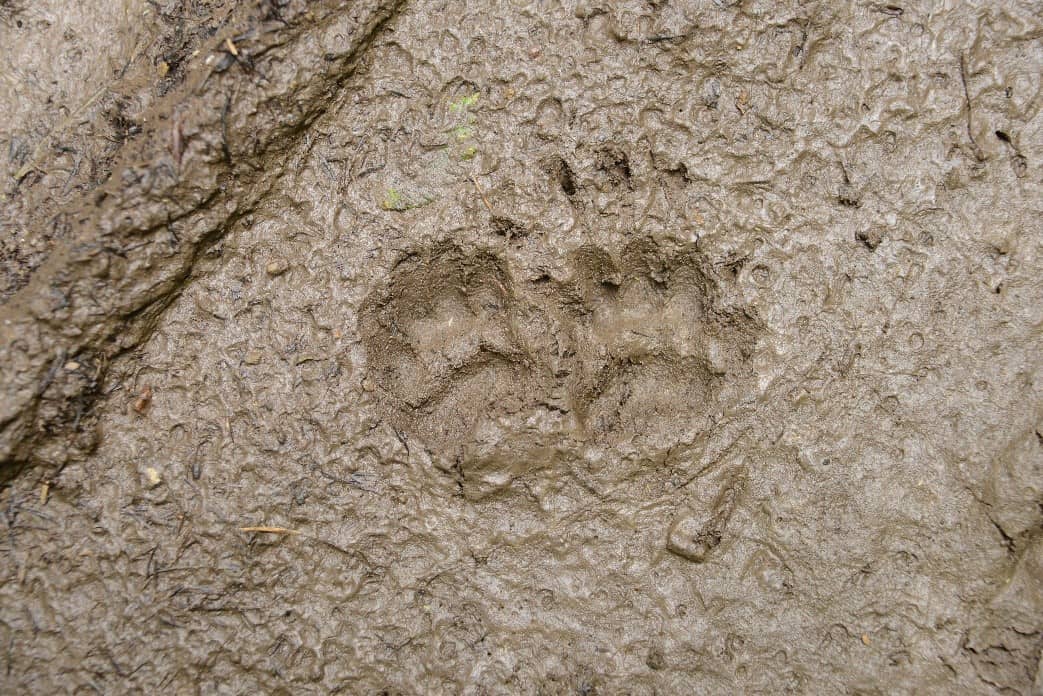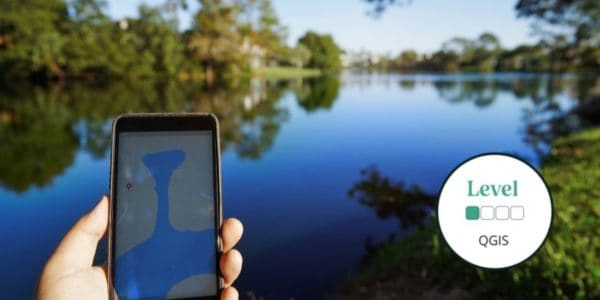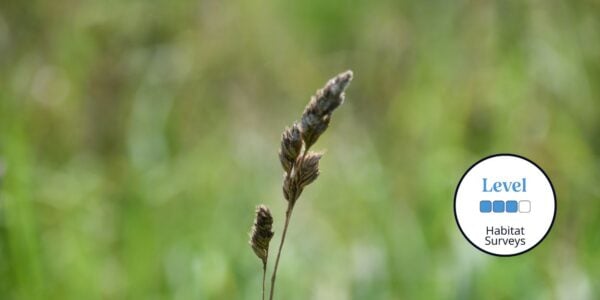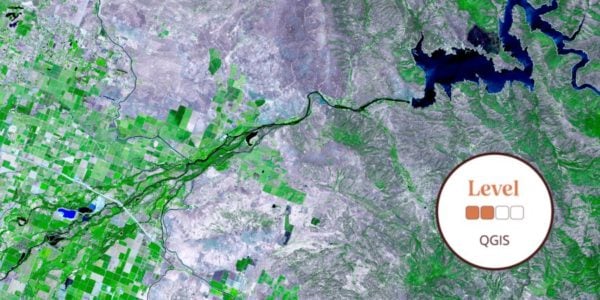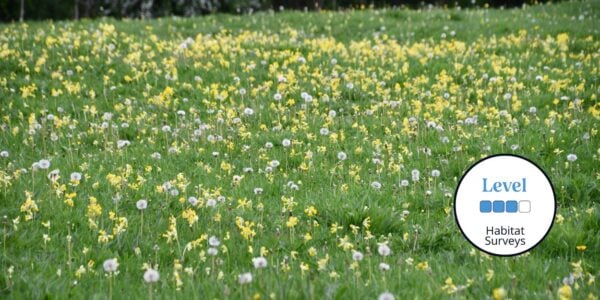This introductory course is a great place to start for those looking to improve their ability to identify a range of wildlife tracks and signs encountered in rural and urban areas and even gardens. Learn this valuable skill for anyone with an interest in natural history and conservation.
Wildlife tracking is an ancient science and art – one that humans once relied upon for survival. Learning to read the clues that animals leave behind helps us to understand more about the animals around us and even find the animal itself.
During this course, you will learn skills to confidently identify a variety of mammal and bird activities and some of the fundamentals of reading them. We will cover some of the key categories of tracks and signs, including footprints, feeding signs, homes, droppings and many more. There will be some classroom presentations and opportunities to take a closer look at examples of various signs. You will also have plenty of time to explore outdoors to put your newfound knowledge into practice, leaving you with a solid introduction to the world of tracking. Tracks and signs can help us become aware of the presence of animals that might otherwise be hard to spot. With practice, these skills can also help anyone to provide valuable biological records, which are important for wildlife conservation. They can also help enrich our understanding and enjoyment of the wildlife around us and its place within the wider ecosystem.
Location: Dounans Centre, Aberfoyle, Stirling, Scotland, FK8 3UT
Dounans is set in the heart of Loch Lomond and the Trossachs National Park. The Centre has a wealth of natural resources on its doorstep and is perfect for education, exploration and adventure!
PLEASE NOTE the course fee is for tuition only. There are no accommodation, refreshment, or evening meal facilities available with this course
Bookings will close if course capacity is reached
This course is suited to anyone with an interest in natural history. Tracking encourages us to pay attention to close-up details as well as the ecosystem as a whole.
Who Should Attend?
Nature enthusiasts, Students, Early career ecologists, Citizen scientists, Volunteer surveyors, Land managers
Knowledge Level
Introductory. Level descriptors can be found on the following webpage: Framework and Course Level Descriptors
Prior Knowledge
No prior knowledge is required, though those with previous experience would still benefit as the tutor is open to answering a range of questions at different levels.
What will be covered during this course?
-
- Introduction to mammal and bird foot morphology and how that relates to the tracks we find in the field and helps us identify the trackmaker.
- The value of learning to read animal tracks and signs.
- How to recognise some of the more frequently encountered animal tracks and signs.
- The tools and methods of analysis that will enable you to continue learning about animal tracks and signs.
By the end of the course, you will be able to:
-
- Understand the role tracking has played, past and present.
- Describe mammalian and bird foot morphology and identify some common tracks.
- Identify and recognise the main kinds of track and signs.
- Understand some of the key techniques for identifying and interpreting tracks and signs including master listing.
- Share this knowledge with friends, family, and fellow volunteers
This is a place-based training course from the Field Studies Council, including a balance of classroom-led learning to impart important knowledge and irreplaceable hands-on outdoor learning opportunities to give individuals skills and confidence. After attending this course, you may like to progress your learning within wildlife tracking with further relevant courses or branch out into other areas of environmental skills. The Field Studies Council offers both online and in person courses, so you can choose the learning style that suits you best.
The course gives you the opportunity to immerse yourself in a new subject and acquire novel skills. Our fantastic tutor will combine the use of classroom-led learning and outside learning opportunities to give individuals the skills and confidence to progress their learning.
-
- See the ‘Example Timetable’ and ‘What’s Included’ sections below for more information about this course.
- Upon booking you will need to provide individual details of all attendees
- Please email [email protected] if you have any questions.
Group Bookings Made Easy
If you have a group of 10 or more individuals wanting to complete one of our courses, our team are available to discuss your options – from discounts to private team courses.
-
- Discounted rates
- Privately run courses for your group
- Bespoke courses developed specifically for your needs
If we are unable to reach viable numbers for this course, we will inform you of the course cancellation 14 days prior to the course run. We would recommend when purchasing accommodation and/or travel you should take out your own insurance.
Tutor: Dan Puplett
Dan Puplett is a naturalist, conservationist and environmental educator, and has been involved in a wide range of conservation projects. He is a certified wildlife tracker and is one of the first people in Europe to achieve a 100% score in Track and Sign under the rigorous international system for evaluation trackers. Dan is the author of the FSC Guide to British Bird Tracks & Signs and teaches naturalist field skills to people of all ages.Book with Confidence
We understand the difficulties of making plans in the current situation when guidelines continue to change, and insurance conditions are being tightened. In response, we will continue to offer additional flexibility. Find out more here
Example Timetable
Example Timetable
This timetable is subject to change but should give a clear outline of what to expect
-
- Please arrive in time for the course to start promptly at 10:00am
- The course will end at 5:00pm
Day 1
| 10:00am | Introductions |
| 10:30am | Classroom session covering:
|
| 11:30am | Break and prepare for field session – refreshments not provided |
| 11:45am | Guided walk |
| 1:00pm | Lunch – Not included |
| 2:00pm | Classroom session covering:
|
| 3:00pm | Break and prepare for field session – refreshments not provided |
| 3:15pm | Guided walk to apply classroom knowledge |
| 4:30pm | Classroom plenary and final questions |
| 5:00pm | Finish |
Please note accommodation, refreshments and an evening meal are not included
Day 2
| 10:00am | Day 1 recap |
| 10:15am | Classroom session covering:
|
| 11:15am | Break and prepare for field session – refreshments not provided |
| 11:30am | Guided walk |
| 12:00pm | Lunch – Not included |
| 1:00pm | Classroom session covering:
|
| 2:00pm | Break and prepare for field session – refreshments not provided |
| 2:15pm | Guided walk |
| 4:30pm | Classroom plenary and final questions |
| 5:00pm | End of course |
Please note accommodation, refreshments and an evening meal are not included
What's Included
The course has been carefully created by expert tutors and educators to help you continue to build your knowledge and apply it within the field surrounded by like-minded individuals.
The course includes:
- Classroom learning covering the theory of the species
- Field excursions to apply new knowledge
- Expert tuition for which the Field Studies Council is renowned
- Clear objectives and progression
You can rest assured that the absolute best content from an expert in environmental education will be provided. In choosing a Field Studies Council course, you will be joining thousands of people who learn with us each year.
Reviews
-
★★★★☆
I loved being in such a knowledgeable and keen group from a wide range of backgrounds.
-
★★★★☆
It was hands on, along with useful classroom back up
Before You Attend
What to Bring:
-
- Notebook and pencil
- Camera to capture images
- Lunch and refreshments
- Sensible footwear and clothing for being outdoors
You may wish to purchase the following Field Studies Council publications to enhance your experience
www.field-studies-council.org/product-category/publications/
-
- Guide to British Bird Tracks & Sign
- Tracks & Signs of Mammals of Britain & Ireland (forthcoming)
- Guide to the Land Mammals of Britain
- Guide to Owls and Owl Pellets
There will be a member of staff with first aid training and access to a first aid kit on site. If you have special medical or access requirements, please let us know as soon as possible so we can plan the course.
Sorry this course booking is closed

